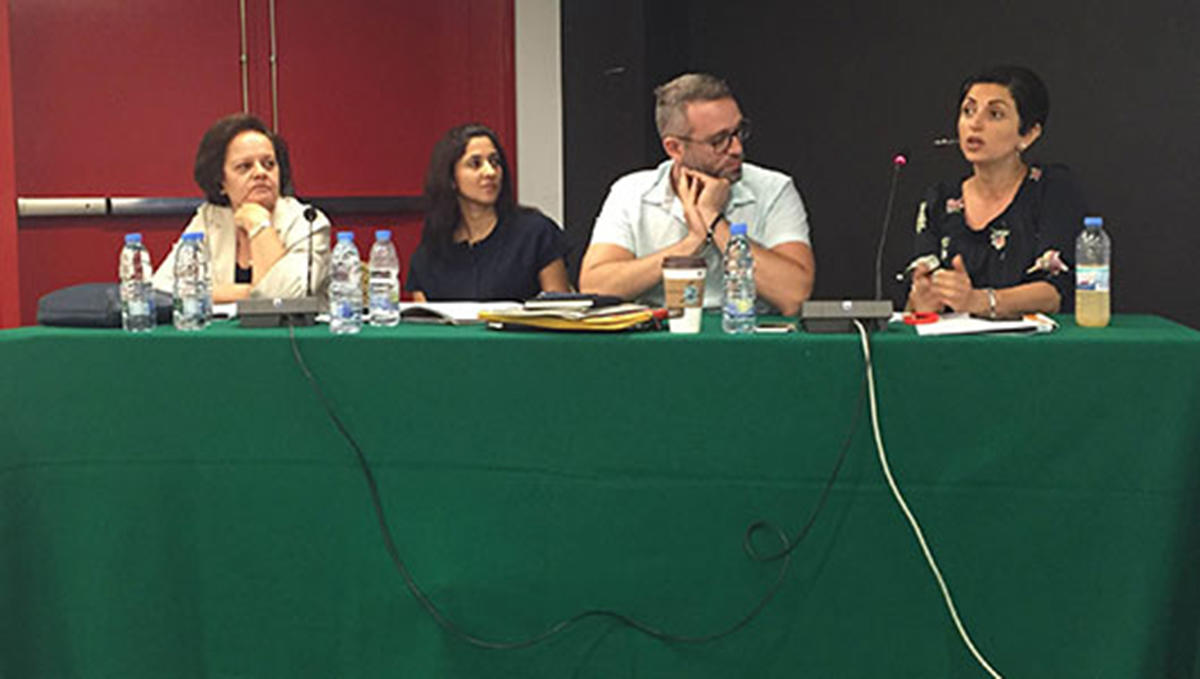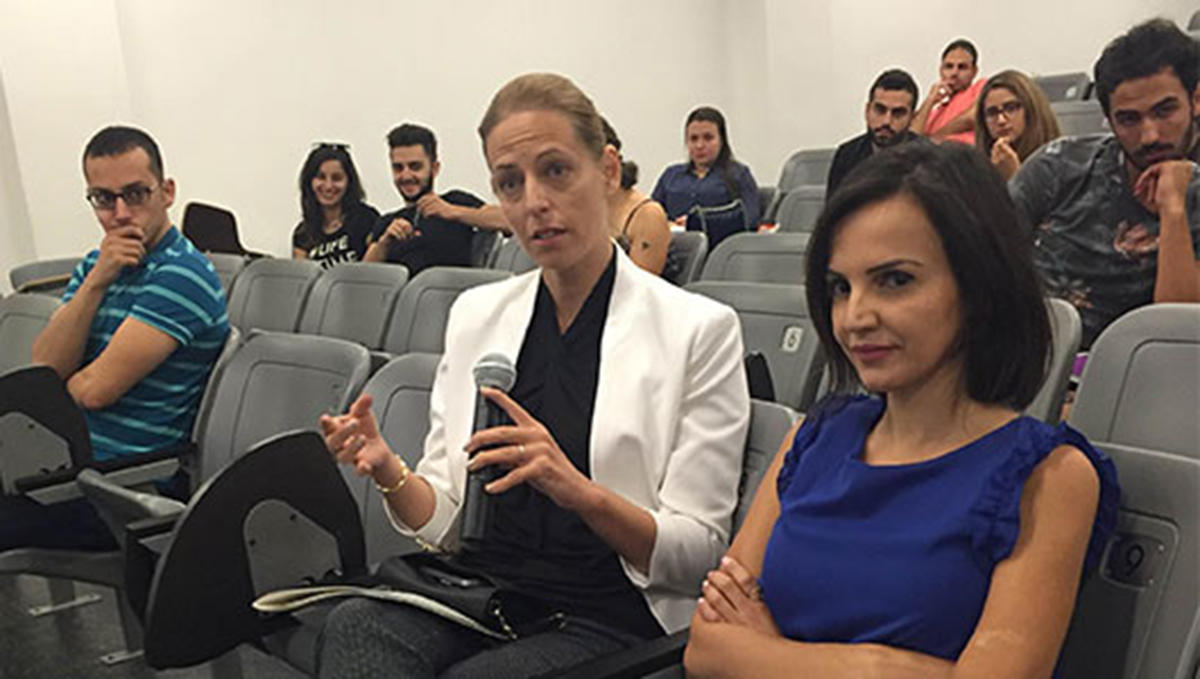Launching Lebanon’s Gender Profile
The Institute’s signature Food 4 Thought discussion for June was dedicated to the release of IWSAW’s Lebanon Gender Profile – the first of its Country Gender Profile Papers for each of the 22 Arab countries. These short papers provide snapshots of gender issues in each Arab country and serve as a starting point for further analysis and engagement.
The informal discussion - Lebanon: Spotlight on Gender - brought together students, faculty and activists from different NGOs. Lebanon’s Gender Profile is the first of the 22 profiles for the Arab Countries that will be available online as they are completed.
The discussion included experts who spoke about the gender equality situation in Lebanon. The panel consisted of Dr. Nida Latif, researcher and author of the 22 Arab Country Gender Profiles, bringing extensive experience working on gender, gender-based violence and public health in a variety of settings. Dr. Marguerite Helou, the expert reviewer of the Lebanon profile, has over 15 years of experience as a senior research analyst and over 12 years experience as a gender consultant for many international organizations. Mr. Georges Azzi, is the co-founder of Helem – a Lebanese non-profit organization and also the Executive Director of the Arab Foundation for Freedoms and Equality.
The session started with a welcome note by Dr. Lina Abirafeh, who then gave the floor to Dr. Nida Latif to explain the concept of the Gender Profiles. These short papers are intended to be brief snapshots of various gender issues in the 22 Arab countries. The Profiles address sectors such as Education, Health, Gender-Based Violence, Gender Policies, Constitutional and Legal Frameworks, Economy, and so on. Some of this data is challenging to obtain! Given that the Gender Profiles are “living documents”, they will need to be updated every few years to ensure that information remains accurate.
Following the brief overview by Dr. Latif, Dr. Helou spoke about gender and politics and the role of national machineries. Her call to action to Lebanon’s youth focused on holding their politicians accountable especially as parliamentary elections draw near. In addition, Dr. Helou commented on possible next steps for political activism in Lebanon, including what these steps might mean in terms of gender equality.
Following this, Mr. Azzi spoke about individuals with diverse sexual orientations, gender identities and expressions (SOGIE) and the discrimination they face within Lebanese society. Quoting statistics compiled from a study done recently, Mr. Azzi spoke of the Lebanese views towards gender fluidity and sexuality, noting the importance of the terms “normal” and “natural,” and how progressive work in gender and sexuality in Lebanon must confront these terms and their implied societal meanings. The Lebanon Gender Profile will be online soon – as will other country profiles when they are completed. 
From left: Dr. Marguerite Helou, Dr. Nida Latif, Mr. Georges Azzi and Dr. Lina Abirafeh
Nicole Rowsell, Resident Country Director, National Democratic Institute
